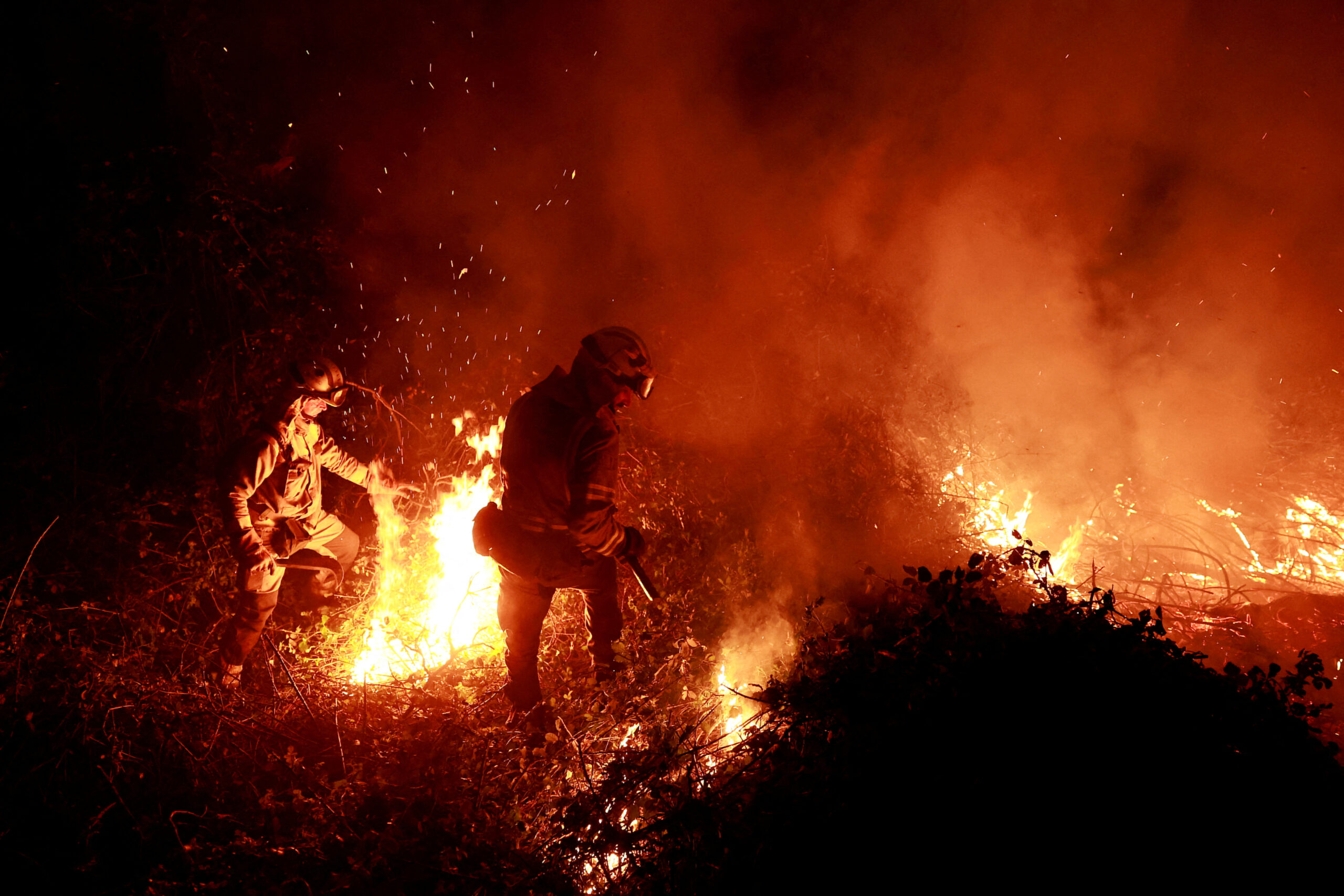EU must prepare for ‘catastrophic’ climate change risks, agency says

Firefighters tackle a blaze near the village of Piedrafita in northern Spain’s Asturias region, March 31, 2023. REUTERS FILE PHOTO
BRUSSELS — Countries across Europe should prepare for “catastrophic” risks, ranging from floods to deadly heatwaves, as worsening climate change hits every part of their economies and societies this century, the EU Environment Agency said on Monday.
Policymakers need to draw up new plans to address the challenges, the Copenhagen-based body said in its first Europe-wide analysis of climate-related risks.
READ: EU poised to OK major plan to meet climate goals, better protect nature
Why it’s important
Europe is the world’s fastest-warming continent, heating up at twice the global rate, the EEA said. Even if countries manage to slow warming, global temperatures are already more than 1C higher than in pre-industrial times.
The EEA said the damage will depend, in part, on whether policymakers act now to prepare societies – for example, by improving insurance coverage, redesigning infrastructure and introducing laws to protect outdoor workers from deadly heat.
Article continues after this advertisementREAD: PH, EU ink €60-million financing pact for ‘green economy’
Article continues after this advertisementWithout more urgent action, the EEA said most of the 36 climate risks facing Europe could hit “critical or catastrophic levels” this century. They include risks to health, crop production and infrastructure.
By the numbers
In a pessimistic scenario, by the end of the century, the EEA said: “Hundreds of thousands of people would die from heatwaves, and economic losses from coastal floods alone could exceed 1 trillion euros per year.”
That would far exceed the 650 billion euros lost to weather and climate-related extremes across the bloc from 1980 to 2022.
Key quotes
Kate Levick, associate director at climate think-tank E3G, urged governments to respond to the EEA’s findings.
“There’s a particular role for finance ministers to essentially look at what happens to balance sheets, in terms of assets and liabilities at national level, as a result of climate risk,” Levick said.
What’s next
The European Commission will publish its response to the report on Tuesday.